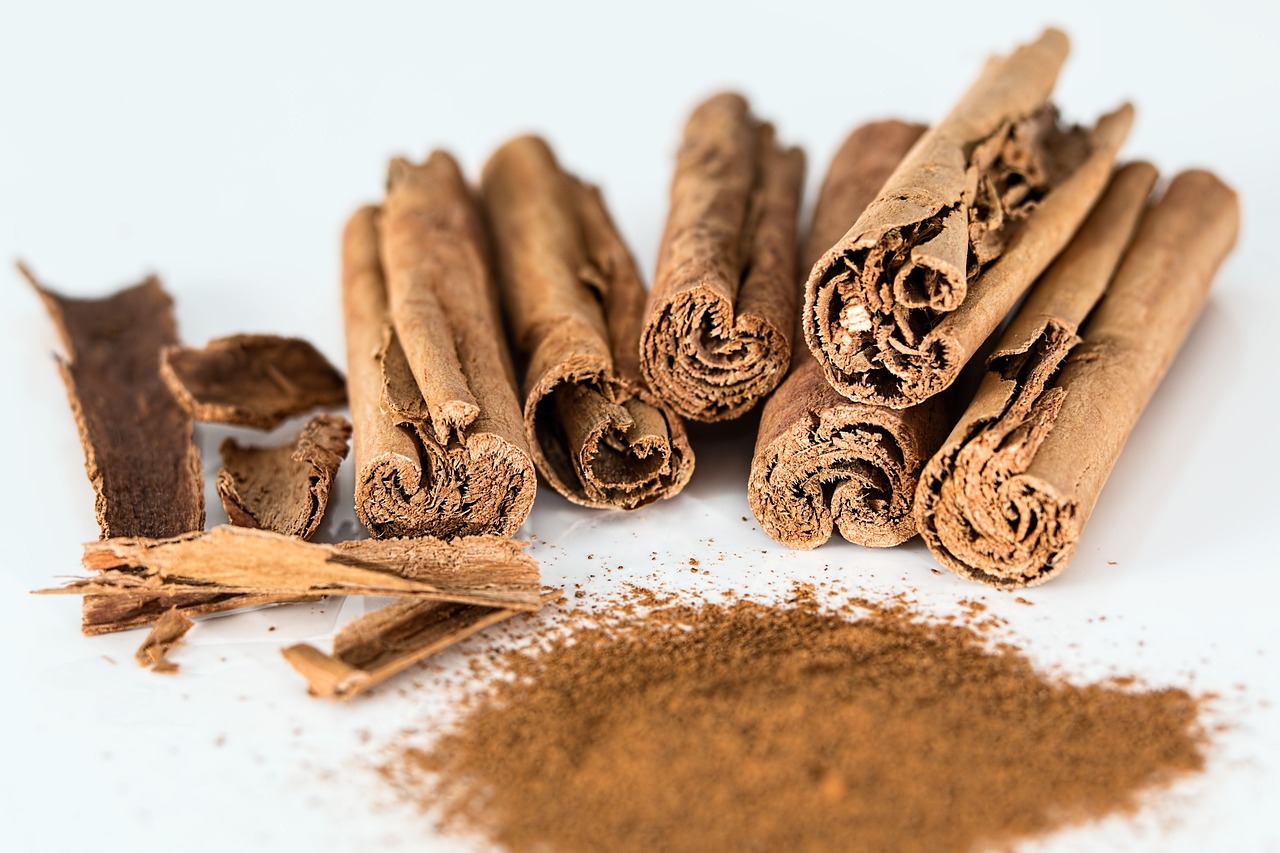
Cinnamon is a spice made from the inner bark of Cinnamomum trees, valued for its flavor and medicinal properties for thousands of years. It was so esteemed that it was given as gifts to royalty and religious leaders. Eventually, it spread globally and became a popular ingredient in various cultures and cuisines. Cinnamon is commonly used in Indian cooking, especially in spice mixes like garam masala and biryani, enhancing both sweet and savory dishes. It is also appreciated for its potential health benefits and is a part of traditional Indian medicine, Ayurveda, where it is used to aid digestion, regulate blood sugar, and promote general well-being. Cinnamon has several health benefits, which include:-
- Antioxidant and anti-inflammatory- Cinnamon is high in antioxidants, which protect the body from oxidative stress and inflammation by neutralizing free radicals. This protection helps reduce the risk of chronic diseases and slows aging. Antioxidants also lower inflammation, which is connected to health issues like heart disease and arthritis. By safeguarding cells from damage, they improve cellular function and may prevent mutations that lead to cancer. Additionally, antioxidants enhance the immune system’s ability to fight infections. Regularly eating antioxidant-rich foods like cinnamon may decrease the likelihood of chronic diseases such as cardiovascular disease, diabetes, and neurodegenerative disorders. Cinnamon helps lower chronic inflammation by inhibiting inflammatory pathways, which is beneficial for conditions such as heart disease, diabetes, and cancer. Its anti-inflammatory properties can reduce pain from inflammatory issues like arthritis and muscle soreness, offering relief from joint stiffness and swelling. By decreasing inflammation, cinnamon may also help prevent arterial plaque buildup, thereby lowering the risk of heart disease.
- Heart health- Cinnamon may lower LDL cholesterol and triglycerides while raising HDL cholesterol, contributing to better cardiovascular health. Research indicates it might also lower blood pressure and enhance insulin sensitivity, aiding in blood sugar regulation. Its anti-inflammatory properties can help prevent artery hardening and other heart issues, while antioxidants in cinnamon protect blood vessels from damage, reducing heart disease risk. Cinnamon enhances the function of endothelial cells, which is vital for proper blood flow and cardiovascular health. It may reduce excessive blood clotting by lowering platelet aggregation, thus decreasing the risk of stroke and heart attacks. Additionally, cinnamon helps improve lipid profiles by reducing harmful lipids in the blood. By supporting metabolic health and aiding in weight management, cinnamon contributes to heart health since obesity is a major risk factor for cardiovascular diseases. Its ability to improve circulation and blood flow ensures that the heart and organs receive necessary oxygen and nutrients.
- Skin health- Cinnamon has beneficial properties for skin health, including antioxidants that protect skin cells from free radical damage, reducing signs of aging and promoting a youthful appearance. Its anti-inflammatory effects help alleviate redness, swelling, and irritation associated with acne and eczema. Additionally, cinnamon has natural antimicrobial properties that prevent and treat acne by inhibiting bacterial and fungal growth. It stimulates blood flow, enhancing nutrient and oxygen delivery to the skin, which supports a healthy complexion and faster healing. Used in DIY face masks and scrubs, cinnamon acts as a natural exfoliant, helping to remove dead skin cells for smoother skin. Its properties can also help even out skin tone and reduce dark spots over time, while some studies suggest it may stimulate collagen production for improved skin elasticity. Furthermore, cinnamon can relieve itching and discomfort from skin conditions like dermatitis due to its soothing effects and promote overall skin texture through cell turnover and exfoliation. Cinnamon has antimicrobial and anti-inflammatory properties that can help control oil production and reduce excess sebum, making it useful for oily or acne-prone skin. It may also enhance the absorption of moisturizing ingredients in skincare, aiding in hydration and preventing dryness. Additionally, cinnamon can brighten the complexion by improving blood flow and promoting the removal of dead skin cells for a more radiant look. Always perform a patch test on a small skin area before using the cinnamon pack to check for allergic reactions or sensitivity.
- Digestive health- Cinnamon aids in the production of digestive enzymes, enhancing food breakdown and nutrient absorption. It reduces bloating and gas by calming the digestive tract and alleviating discomfort. Additionally, it helps relieve indigestion symptoms like nausea and upset stomach. Cinnamon improves insulin sensitivity and regulates blood sugar levels, preventing discomfort from spikes and crashes. Its natural antimicrobial properties combat harmful gut bacteria, supporting overall gut health.
-Triparna







